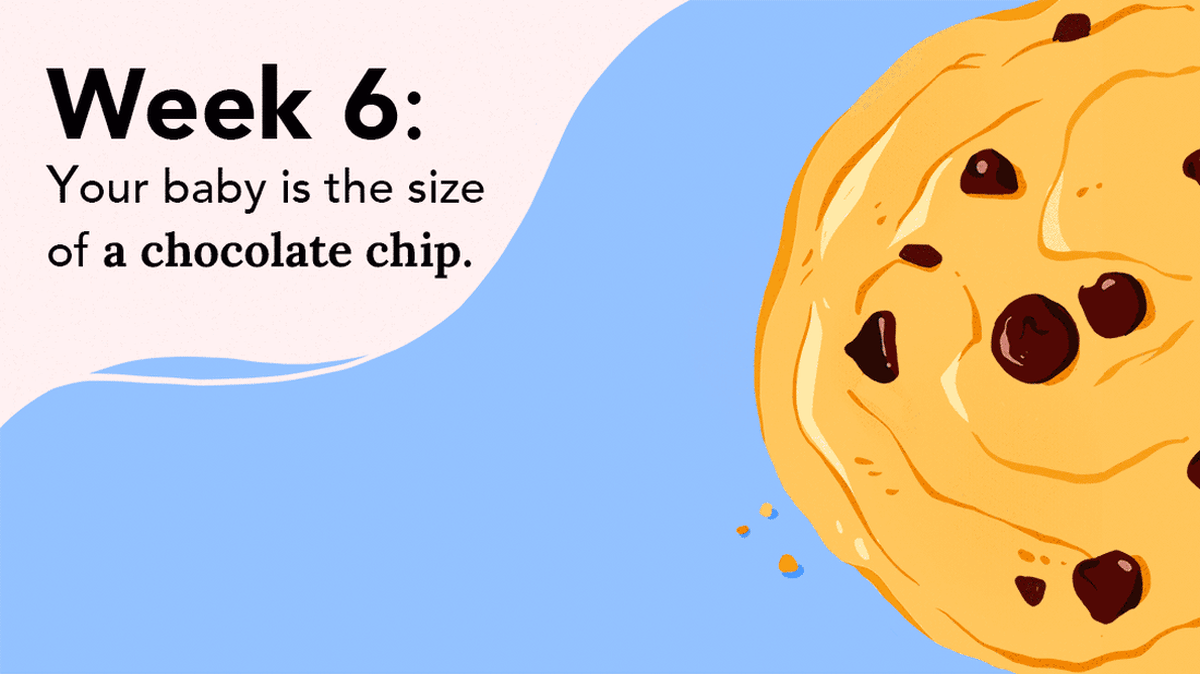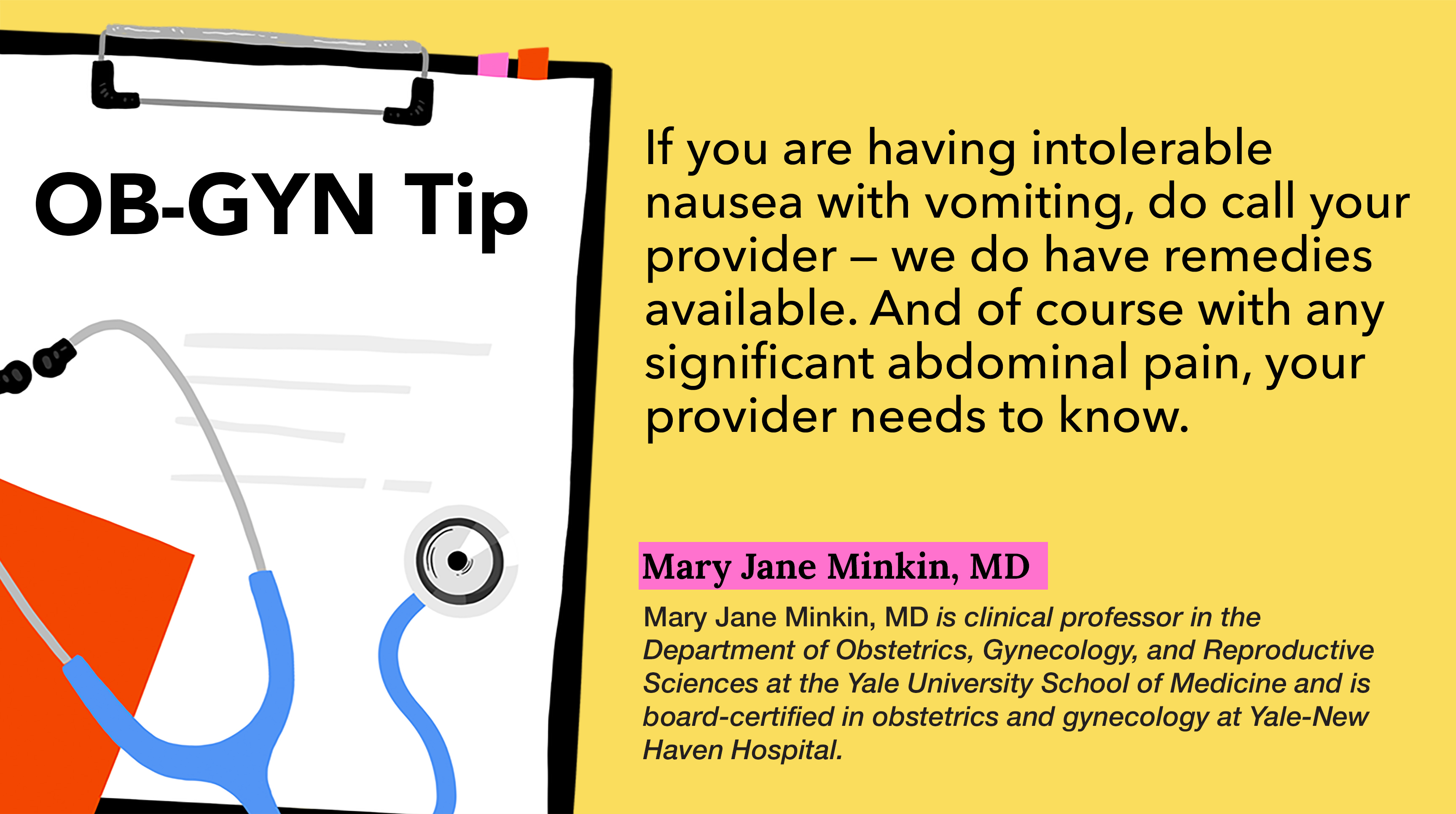
In this article
You’re 6 weeks pregnant!
Hello, hormones! Weeks six to nine of the first trimester mark the transition of your baby from an embryo to a fetus, explains Columbia University Mailman School of Public Health. Major organ systems and recognizable body features begin to take shape. While you wait for their body to mature to the point that they can safely meet you face to face, you can start getting to know them by tracking their week-by-week development during your pregnancy.
According to the Mayo Clinic, during week six of pregnancy tiny arm and leg buds start to appear. KidsHealth adds that their eyes and ears start early formation with the development of the optic vesicles, nostrils and the passages of the inner ear. The neural tube along the back closes it is also around this time your baby's heart will begin to beat. Their spinal and bone tissue starts growing and their respiratory systems and pancreas begin to take shape. They measure between 0.08 and 0.2 inches — about the size of a chocolate chip.

Pregnancy symptoms at 6 weeks
The second month of pregnancy brings a lot of noticeable changes to your body and your developing baby. At 6 weeks, don’t worry if you haven’t started experiencing any pregnancy symptoms. Every person’s body reacts to pregnancy hormones and developing fetuses differently.
However, you may notice some of these other symptoms of being pregnant at 6 weeks:
Tender breasts
Due to rising estrogen and progesterone levels boosting blood flow, your breasts may feel achy, heavy, lumpy, tingly, extra sensitive, and extremely uncomfortable.
Food cravings or aversions
Not only may you start craving random foods, you may start hating foods you used to love! Your body is adjusting fluctuating hormone levels so give yourself time to both figure out what you now like to eat or don’t.
Excessive saliva
Usually accompanied by morning sickness and nausea, another weird symptom of being pregnant is excessive saliva. Even if you don’t feel barfy, your mouth will constantly feel as if it’s filling with spit. Don’t worry too much about it — this will eventually pass in the second trimester.
Morning sickness
Nausea and vomiting commonly start around 4 to 6 weeks of pregnancy and can happen at any time. Whether you feel queasy, or certain foods or smells trigger your discomfort, it can be exacerbated by eating too much or having an empty stomach. Symptoms usually stop in the second trimester.
What does 6 weeks equal in months?
At 6 weeks pregnant, you’re in your second month of pregnancy. Since pregnancy is 40 weeks long and is not easily divisible by three, the weeks don’t slot neatly into 4-week months. Each trimester is about 13 to 14 weeks long, and at 6 weeks pregnant, you’re in your first trimester. Here’s a quick primer what pregnancy weeks equal to in months around 6 weeks:
-
Month 2: Weeks 5 to 8
-
Month 3: Weeks 9 to 13
-
Month 4: Weeks 14 to 17
Your ultrasound
At 6 weeks gestation, it is generally the earliest your doctor will conduct an ultrasound to confirm pregnancy. Because the fetus is often too small to see on a standard ultrasound your medical professional will likely do a transvaginal ultrasound. It is still a little bit too early to estimate gestational age from a transvaginal ultrasound at 6 weeks, but they can check for the fetal heartbeat which is currently twice the speed of yours.
Your pregnant belly at 6 weeks

At 6 weeks pregnant, though you are likely not showing yet, your clothing might already be getting a little too tight. Loosen the top button or get those early pregnancy stretchy waist pants! You may feel some bloating or mild cramping as your uterus expands to accommodate your growing baby. Your embryo is about the size of a pea or lentil though your belly may feel achy as your uterus expands and makes room for your baby as it grows.
Your baby’s eyes and nostrils are starting to form as dark spots on the embryo and their ears are tiny depressions on either side of their head. Their tongue, and vocal cords are beginning to develop inside their mouth, and arm and leg buds that look like small paddles are forming, too. Your baby is also in the iconic fetal curl with their backbone sticking out like a tiny tail. That will disappear after a few week’s time.
Pregnancy tips at 6 weeks
At 6 weeks, you’re still at the very beginning stages of pregnancy and may be feeling super overwhelmed. Don’t worry — you have approximately 40 weeks to slowly acquire all the information you need. And even if you don’t feel fully prepared, know that there is no way to know everything. Even seasoned parents have moments of doubt and worry!
You don’t have to give up all seafood
You may want to avoid raw fish or fish high in mercury like tilefish, swordfish, or king mackerel, but you can still eat seafood if you want. Seafood is a good source of protein, iron, and zinc.
Don’t delay urinating
Unfortunately, one of the symptoms of pregnancy is frequent urination. Even if it’s annoying, don’t hold it in! As mentioned above, it’s a lot easier for pregnant people to get UTIs, so don’t delay. Pee when you need to and don’t restrict your water intake because you don’t want to pee so much.
Eat several small meals a day
If your morning sickness has already started and you feel queasy and sick, stick to several small meals a day. Try to avoid overeating or an empty stomach — both which will exacerbate your nausea.
Your pregnancy checklist at 6 weeks
Soak in the happy feelings of finding out you’re pregnant for as long as you want. You have plenty of time to tick things off a checklist — but just in case you’re a go-getter,
Make your prenatal appointment
Since you most likely just found out you are pregnant, go make that first prenatal appointment right now. These slots can fill up really quickly so get yours on the books as soon as you can.
Check your work safety
If you’re going into the office for work, make sure your workplace doesn’t expose you to hazardous chemicals, radiation, biological agents, or heavy metals like lead or mercury.
What are you eating for you and your baby?

At 6 weeks pregnant, you will need to eat foods high in folic acid, calcium, iron and protein. If you can’t get all of these nutrients from your diet, consider adding supplements and vitamins.
Folic acid
Folic acid is a B-vitamin that’s needed for neural tube, central nervous system, and brain development. Take a folic acid supplement or eat foods naturally high in folic acid like green leafy vegetables, broccoli, chickpeas or kidney beans, nuts, and oranges or strawberries.
Choline
One essential nutrient for physiological processes like producing neurotransmitters and phospholipids is choline. It helps decrease neural tube defects and helps develop the memory center of the fetal brain. Choline is in foods like meat, fish, dairy, eggs, potatoes, broccoli, nuts, seeds, and whole grains.
DHA
DHA is a healthy fat and an omega-3 fatty acid essential to helping develop your baby’s brain and eyes. You can get DHA from supplements or prenatal vitamins, or from foods like fatty, oily fish such as salmon, sardines, seaweed, dairy, or omega-3 enriched or pasture-raised eggs.
Protein
Eat approximately three servings of protein a day to ensure healthy development of tissues, antibodies, hormones, and enzymes. Try protein-rich foods like skinless chicken, lean beef, eggs, fish, dairy, nuts, or legumes.
When to call your doctor
If you experience unbearable nausea, constant vomiting or bleeding, please contact your medical practitioner immediately. If you feel a sharp abdominal, pelvic, neck, or shoulder pain with light to heavy vaginal bleeding, dizziness or fainting, or rectal pressure, go see a doctor right away for a possible ectopic pregnancy. The signs for ectopic pregnancies usually manifest around 6 to 8 weeks.
Another time you should call your doctor is if your vomiting and nausea affect your daily life. That is a symptom of hyperemesis gravidarum and it affects less than 3% of pregnant folks. It can lead to dehydration, mineral imbalance, weakened muscles, and weight loss. Hyperemesis gravidarum generally starts around 4 to 6 weeks and generally gets better around 20 weeks (but not always). There are various treatments and medication your doctor can provide, with hospitalization necessary in up to 5% of women.
According to the Centers for Disease Control and Prevention (CDC), pregnant women are at a higher risk of severe illness from COVID-19 and death compared to non-pregnant people. Furthermore, pregnant women with COVID-19 are at increased risk of delivering a baby before 37 weeks (preterm birth) and other adverse ramifications.
Note: If you are visiting a medical professional during COVID, make sure to ask about the facility's safety measures and confirm that they are following COVID protocols as indicated by the CDC.
Additional considerations
Hypertension or high blood pressure is when your blood pressure is equal to or greater than 130/80 mm Hg and a condition that some pregnant people experience. Even though high blood pressure isn’t an automatic danger, it can cause complications for the pregnant person and fetus, both before and after birth. According to the CDC, about 1 in every 12 to 17 pregnant women between 20 to 44 years old in the U.S. have hypertension. Thankfully, high blood pressure is preventable and treatable.
Possible causes of high blood pressure in pregnancy include:
- Not being physically active enough
- Smoking
- Drinking alcohol
- First time pregnancy
- Being obese or overweight
- Family history of hypertension
- Carrying multiples
- Over 35 years in age
- Having diabetes or some autoimmune diseases
- Using IVF or other forms of assisted reproductive technology
Some complications for parent and baby from hypertension can include preeclampsia, eclampsia, stroke, induction of labor, and placental abruption for the mother and preterm delivery and low birth weight for the developing fetus.
The main three kinds of high blood pressure in pregnant people are:
Chronic hypertension
Chronic hypertension is high blood pressure you develop before you’re 20 weeks pregnant — and sometimes before you are pregnant. Many people don’t even know they have high blood pressure until they go in for their prenatal checkup and on occasion, chronic hypertension can develop into preeclampsia.
Gestational hypertension
Gestational hypertension is high blood pressure you develop after you are about 20 weeks pregnant. It usually doesn’t cause harm to either mother or baby and goes away within the first 12 weeks after birth. However, it does raise your risk of developing high blood pressure in the future and in some people, it can turn into preeclampsia.
Preeclampsia
Preeclampsia is high blood pressure you develop suddenly after you are 20 weeks pregnant and usually occurs in the last trimester. It can also cause some damage to some of your organs like your liver or kidneys and can be life-threatening. Your urine may also have proteins in it. Very rarely, preeclampsia can set in after giving birth.






